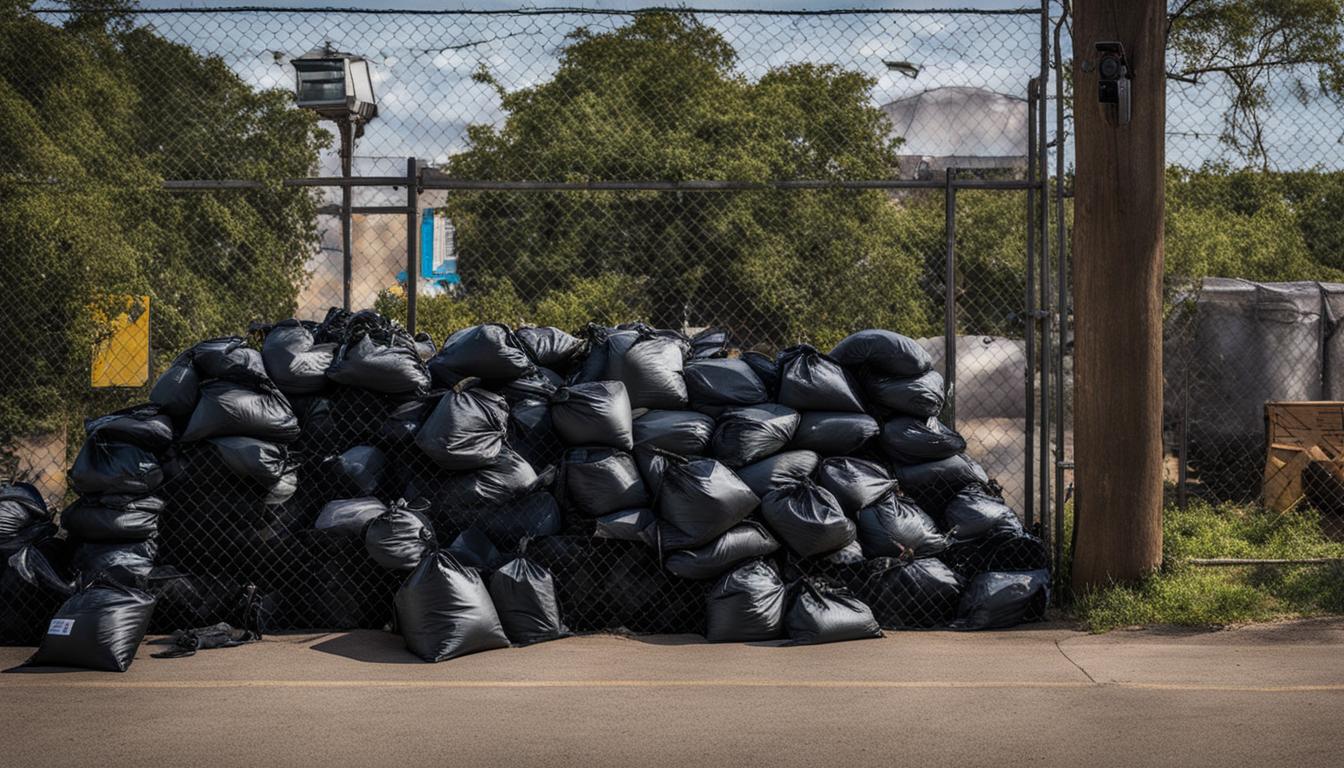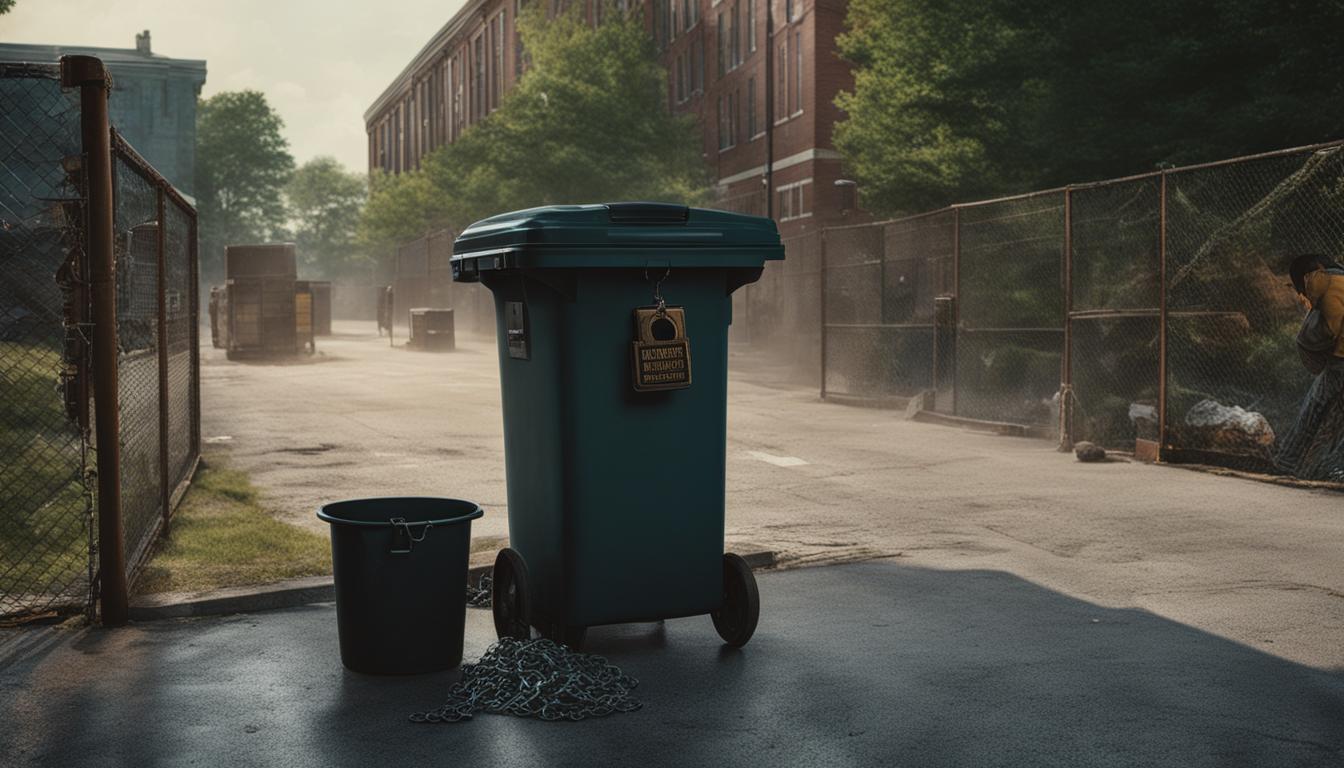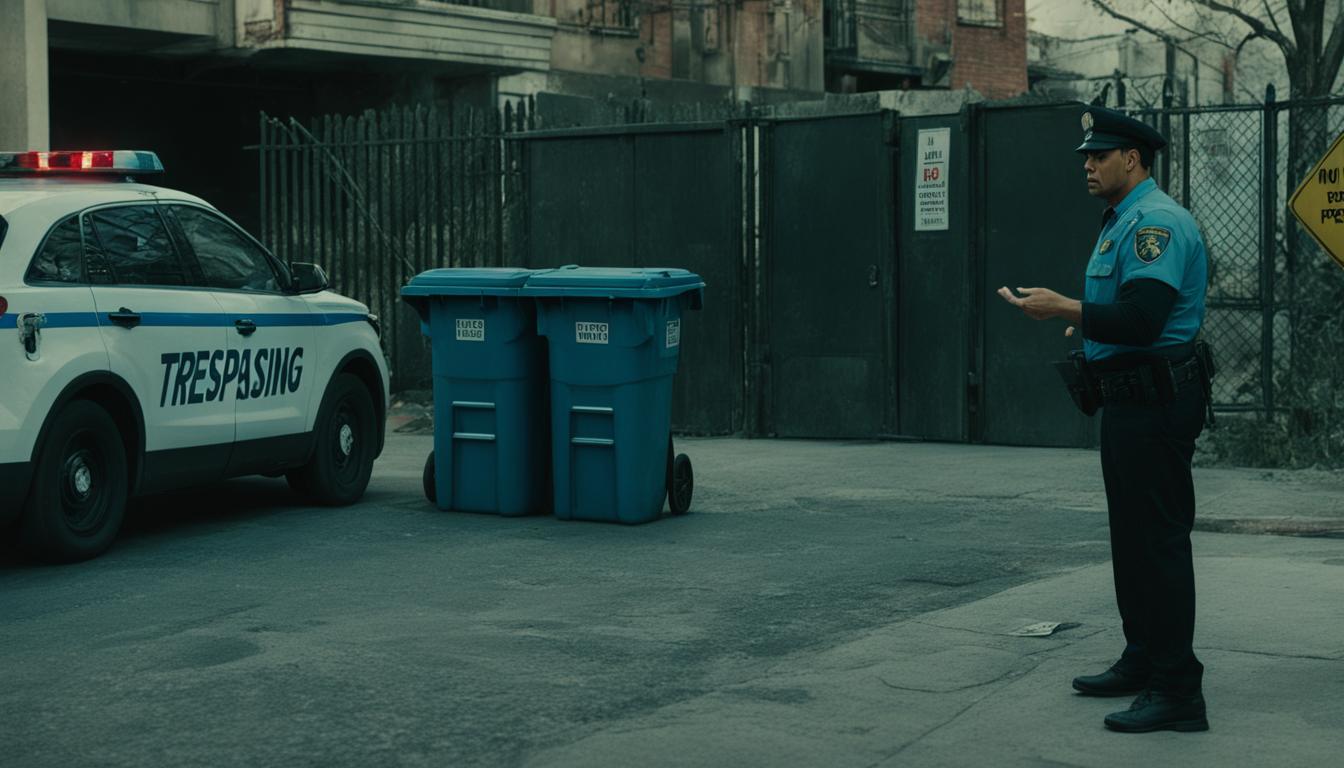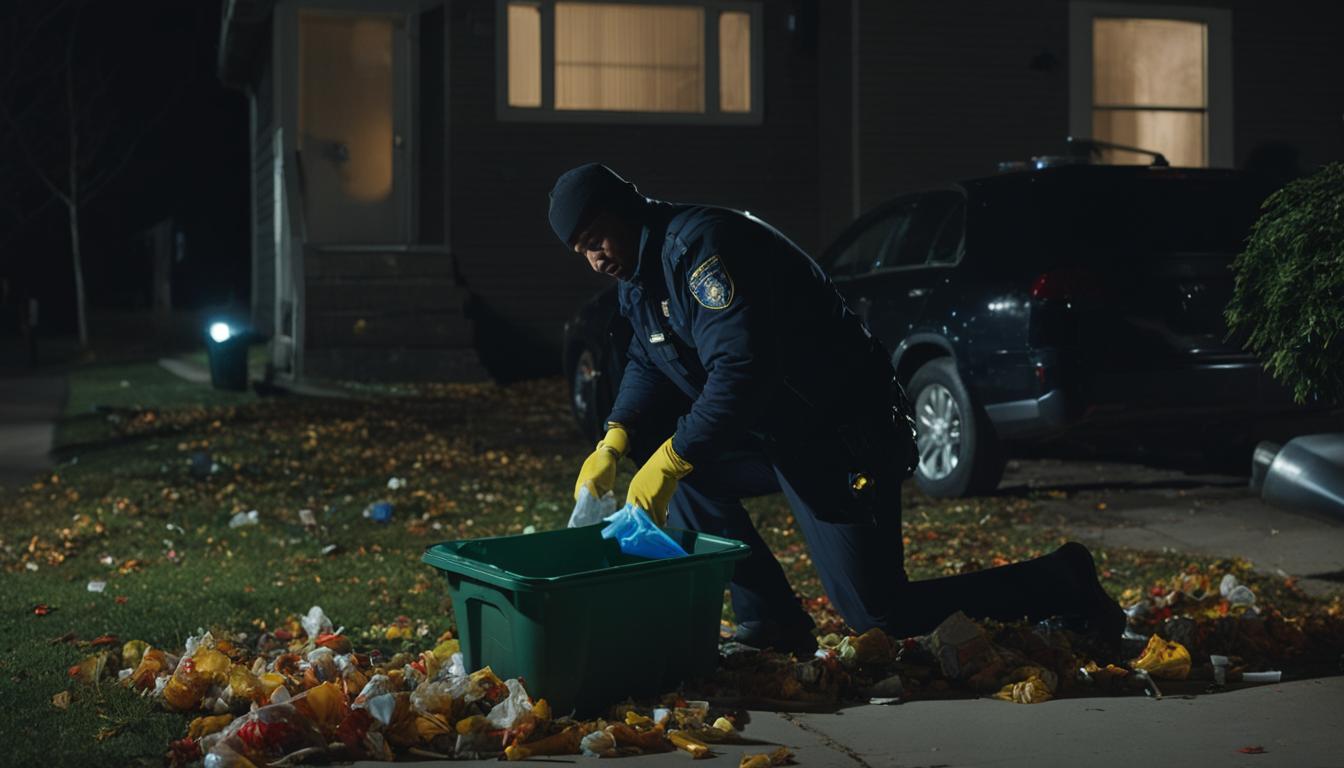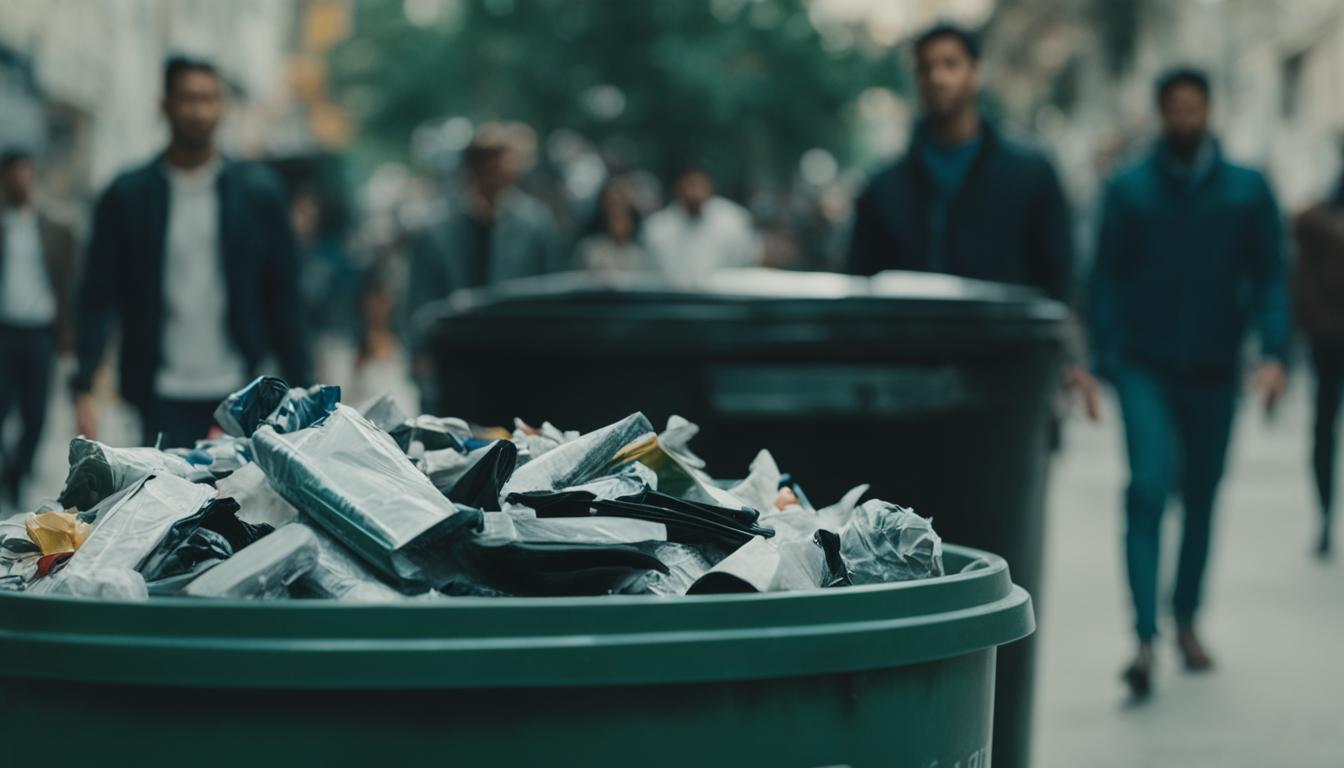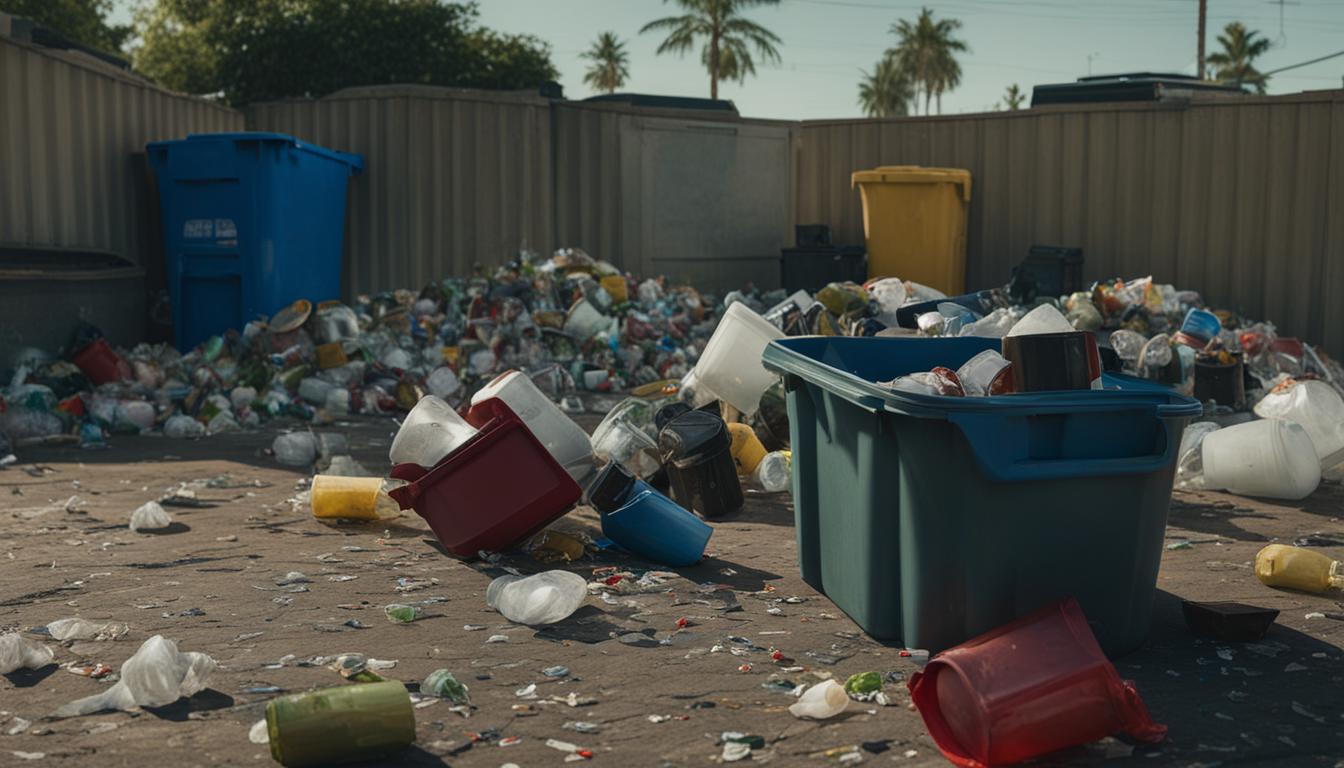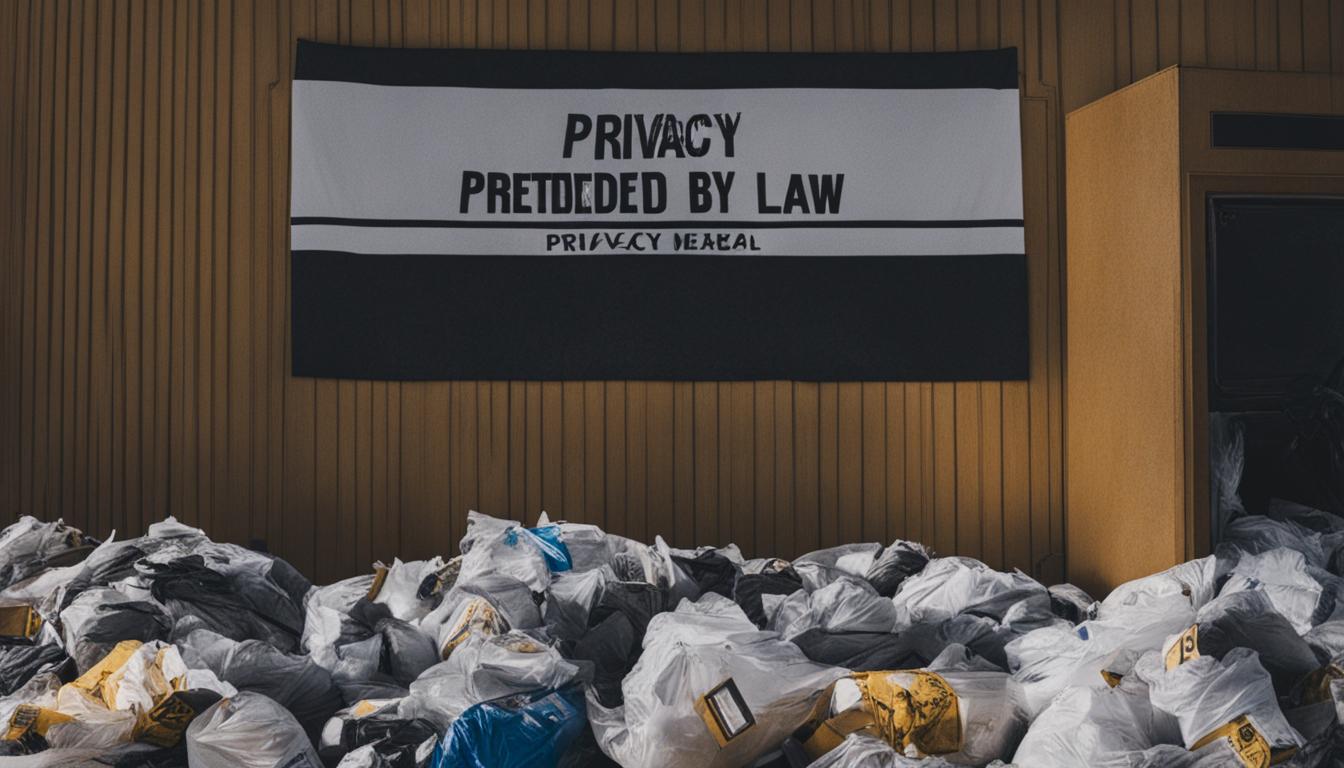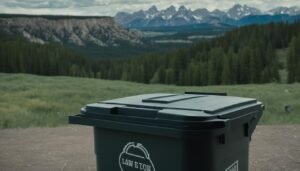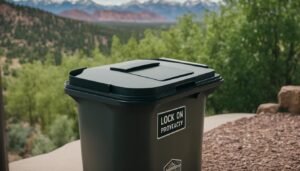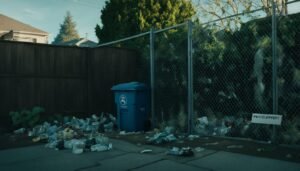Disclosure: This Post Contains Affiliate Links; We earn a commission on purchases.
When it comes to trash privacy, knowing the laws in your state is crucial. In Oregon, the issue of whether someone can legally go through your trash has been addressed by the state’s highest court, the Oregon Supreme Court. Understanding the rules and regulations surrounding garbage inspection can help protect your privacy and ensure that you are complying with the law.
The Oregon Supreme Court has made it clear that residents have a reasonable expectation of privacy when it comes to their trash. This means that if your garbage and recycling bins are non-transparent and have the lid closed, only you, as the owner, can legally inspect them without permission. However, if your containers are open and located on public property, they are open to inspection by anyone. When it comes to private business property, the rule is clear – those containers are off-limits to outsiders. However, there is still some ambiguity regarding containers at apartment complexes and condos. The legal landscape surrounding these specific scenarios is not as clear-cut.
It’s important to note that the Oregon Supreme Court’s ruling specifically pertains to trash left on the curb for pick-up. Once trash is placed in opaque bins covered with a lid, no one, including garbage haulers’ employees, can inspect it without a warrant. This decision is in contrast to past court rulings, which allowed warrantless searches of trash collected by motel maids or curbside garbage haulers. However, it’s crucial to understand that this ruling applies only to curbside refuse collected from private homes and does not extend to trash thrown in public garbage cans.
Key Takeaways:
- In Oregon, residents have a reasonable expectation of privacy regarding their trash.
- Non-transparent bins with the lid closed can only be legally inspected by the owner.
- Open containers on public property are open to inspection.
- Containers on private business property are off-limits.
- The legal landscape surrounding containers at apartment complexes and condos is less clear.
Understanding the laws and regulations surrounding trash privacy in Oregon is essential for both individuals and businesses. While the ruling by the Oregon Supreme Court protects the privacy interests of residents, it also raises concerns about evidence preservation and the invasion of privacy. Adhering to the laws, communicating with homeowners when collecting cans, and practicing proper garbage disposal can help ensure legal compliance while still respecting personal privacy.
Oregon Supreme Court Decision on Trash Privacy
The Oregon Supreme Court’s ruling on trash privacy has established a significant precedent regarding the privacy interests of Oregonians when it comes to their curbside refuse. According to the court’s decision, individuals retain a privacy interest in the garbage they place on the curb for pick-up. This means that once trash is placed in opaque bins covered with a lid, it cannot be inspected by anyone, including garbage haulers’ employees, without a warrant.
This ruling stands in contrast to past court decisions that allowed warrantless searches of trash collected by motel maids or curbside garbage haulers. It emphasizes the importance of personal privacy and limits the ability of others to access and inspect a person’s discarded items without proper legal authorization.
It is crucial to note that this ruling specifically applies to curbside refuse collected from private homes. Trash thrown in public garbage cans may not be protected by the same privacy rights. However, individuals’ privacy interest remains intact when their trash is enclosed within opaque bins with a closed lid.
Implications and Privacy Protections
“The Oregon Supreme Court’s decision reinforces the privacy rights of individuals, ensuring that their discarded personal items are shielded from unauthorized inspection. This ruling offers an important protection against the invasion of privacy and upholds the principle that citizens have a reasonable expectation of privacy even in their discarded belongings.” – Legal Expert
This ruling has significant implications for both individuals and law enforcement. On the one hand, it strengthens privacy protections for individuals, preserving their right to maintain their personal information and items as private. On the other hand, it poses challenges for law enforcement agencies in obtaining evidence related to illegal activities, as they now require search warrants to inspect curbside refuse.
While this ruling provides clarity on the privacy rights of Oregon residents, there are still some legal gray areas surrounding other types of refuse, such as containers at apartment complexes and condos. Additionally, questions regarding the preservation of evidence by garbage haulers may arise, as they are now required to uphold privacy protections and avoid warrantless inspections.
| Implications | Concerns |
|---|---|
| Strengthened privacy rights | Potential difficulties for law enforcement in obtaining evidence |
| Clear parameters for curbside refuse privacy | Possible legal ambiguity surrounding refuse containers in certain settings |
The Oregon Supreme Court’s decision on trash privacy strikes a balance between protecting individual privacy interests and law enforcement needs. It underscores the significance of obtaining proper authorization, such as search warrants, before accessing and inspecting someone’s discarded items. By upholding privacy rights, this ruling ensures that individuals’ personal information and belongings, even in the form of curbside refuse, are safeguarded from unwarranted scrutiny.
https://www.youtube.com/watch?v=WfhOphUq8rE
Collecting Cans from Others’ Trash in Oregon
When it comes to collecting cans from other people’s trash in Oregon, it’s important to understand the local ordinances and homeowner permissions. While recycling cans can be a great way to earn some extra money and contribute to sustainability efforts, it’s essential to do so within the bounds of the law.
In Oregon, collecting cans from private property without homeowner permission is considered trespassing and can lead to legal consequences. To avoid any trouble, always ensure that you have explicit permission before going through someone’s garbage or recycling bins.
However, there are certain scenarios where collecting cans is fair game. Open containers on public property, such as parks or sidewalks, are typically accessible for collecting cans. Public garbage cans are not subject to the same restrictions as private property.
It’s also worth noting that homeowners play a crucial role in determining whether their garbage and recycling bins can be sifted through by others. If the containers are non-transparent and have their lids closed, it signifies that only the owner has the legal authority to inspect their contents. This helps maintain privacy and prevents unauthorized collection from occurring.
To summarize, here are the key points to keep in mind when collecting cans from others’ trash in Oregon:
- Obtain homeowner permission when collecting cans from private property.
- Avoid trespassing by not collecting cans without explicit consent.
- Open containers on public property are accessible for collecting cans.
- Respect homeowners’ privacy by refraining from going through non-transparent containers with closed lids.
By adhering to these guidelines and respecting local ordinances, you can engage in can collection activities responsibly and within the confines of the law.
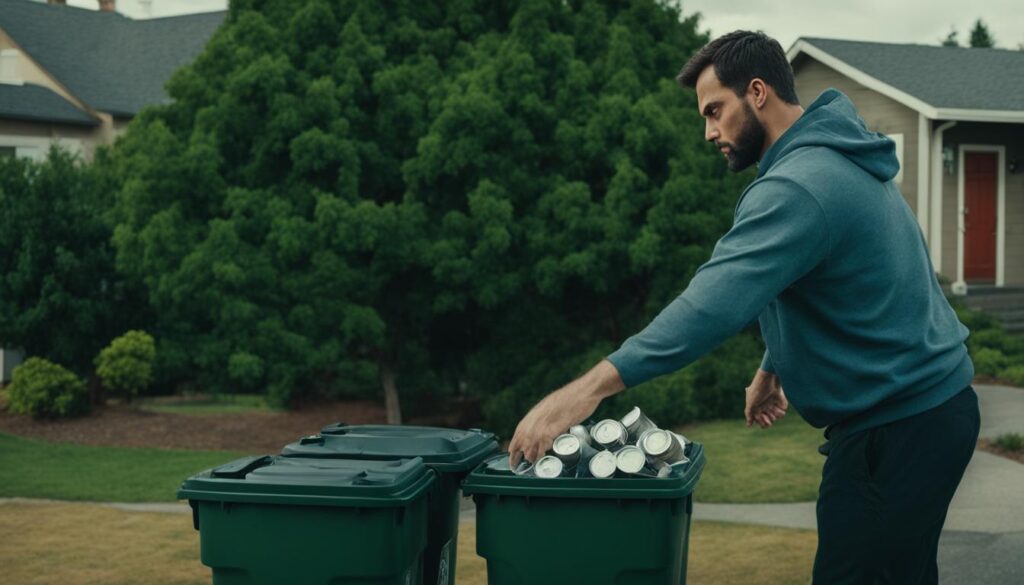
Potential Implications and Concerns
The Oregon Supreme Court’s ruling on trash privacy has raised significant concerns and potential implications. While the decision serves to protect individuals’ privacy rights, it also creates some challenges related to evidence preservation and legal gray areas.
One major concern is the potential for evidence of illegal activities, such as drug or weapon disposal, to go unnoticed if search warrants are required for inspecting trash. The ruling limits the ability of law enforcement authorities to gather crucial evidence without the legal process in place.
On the other hand, there are concerns about the invasion of privacy if anyone can freely inspect someone’s garbage. The ruling establishes strict boundaries on the privacy of individuals regarding their trash, but it also creates ambiguity about who has the authority to access the contents of certain containers.
Legal Gray Areas
One area of legal ambiguity is the rules surrounding trash containers at apartment complexes and condos. It remains unclear whether residents in such establishments have the same level of privacy protection as those in single-family homes.
Additionally, the responsibility of garbage haulers in preserving potential evidence poses concerns. While the ruling places restrictions on inspections, obligations for garbage haulers to document any suspicious items or activities are not explicitly defined.
Ensuring Privacy and Compliance
To address these concerns and navigate the legal gray areas, it is crucial to continue the dialogue surrounding privacy, evidence preservation, and responsibility. Lawmakers should consider revisiting the legislation to ensure that public safety is balanced with privacy rights.
Adhering to trash privacy laws is essential for both individuals and organizations. It is important to recognize the need to preserve evidence while respecting privacy and legal boundaries.
- Securely store any potentially sensitive or incriminating items to avoid legal issues.
- Ensure that garbage and recycling containers are non-transparent and that the lid is closed.
- Communicate with homeowners and obtain permission before accessing their trash for any purpose.
Potential Implications and Concerns
To illustrate the potential implications and concerns surrounding the Oregon Supreme Court’s ruling on trash privacy, below is a visual representation of the key factors:
| Concerns | Potential Implications | Legal Gray Areas |
|---|---|---|
| Evidence preservation | Limiting law enforcement’s ability to gather evidence of illegal activities without a search warrant | Rules regarding containers at apartment complexes and condos |
| Privacy invasion | Potential for anyone to freely inspect someone’s garbage, raising invasion of privacy concerns | Responsibility of garbage haulers in preserving potential evidence |
Public Opinion on Trash Privacy Laws
When it comes to trash privacy laws, there is a wide range of public sentiment. The topic evokes strong opinions, with some arguing vehemently for the preservation of privacy rights, while others emphasize the need for law enforcement to ensure public safety. The debate centers around the trade-offs between privacy and security, with individuals weighing the potential risks and benefits of allowing warrantless inspections of trash.
One viewpoint often expressed is that if people truly cared about the contents of their trash, they would take precautions to secure it, and therefore, warrantless searches should be permitted. This perspective suggests that the responsibility lies with the individual to protect their own privacy and that leaving trash unattended on the curb signifies a willingness to relinquish any expectation of privacy.
“If you’re throwing something away, it’s because you no longer want or need it. Why should we be concerned about privacy if we willingly discard it?” – John Smith, Portland resident
On the other hand, many believe that privacy is a fundamental right that should be safeguarded, even when it comes to trash disposal. They argue that allowing unchecked access to someone’s garbage sets a dangerous precedent and undermines individual liberties.
In addition to the debate surrounding privacy rights, public opinion diverges on the impact of trash privacy laws on individuals who collect cans and bottles from recycling containers. Some argue that these laws may hinder the livelihood of those who rely on collecting recyclables to make a living, while others believe that regulations are necessary to protect homeowners and maintain order in neighborhoods.
The Law Enforcement Perspective
From a law enforcement standpoint, the need for unhindered access to trash stems from the potential for crucial evidence to be discarded. Supporters of warrantless trash inspections argue that requiring a search warrant for every instance would impede investigations and potentially allow criminals to dispose of incriminating materials undetected.
However, critics of this perspective highlight the importance of striking a balance between law enforcement needs and individual privacy rights. They stress the significance of obtaining proper authorization, such as a search warrant, to prevent excessive intrusion into personal lives and protect against abuse of power.
Ultimately, public sentiment on trash privacy laws remains divided, reflecting the ongoing debate surrounding the delicate balance between individual privacy, law enforcement needs, and public safety.
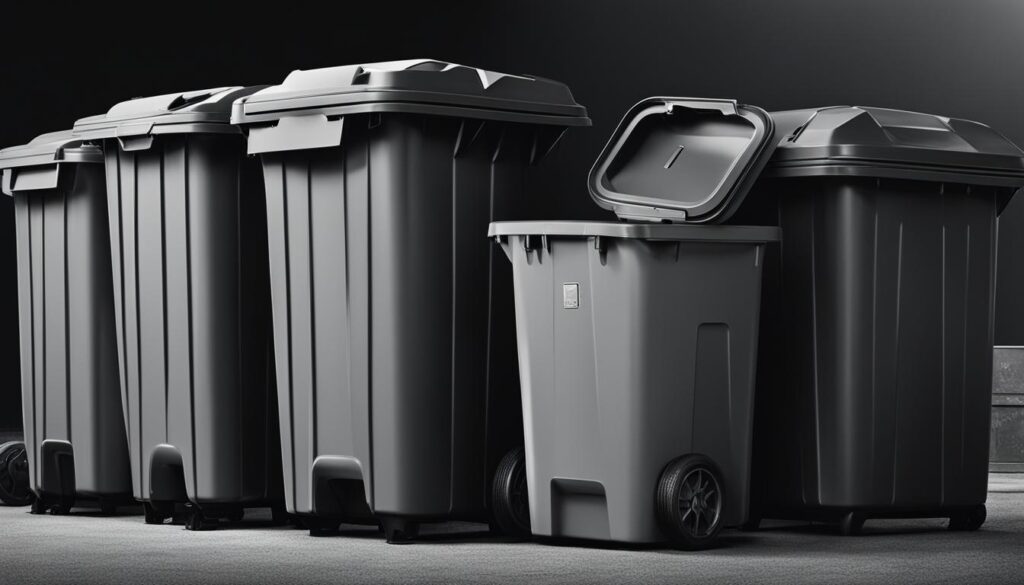
| Pros | Cons |
|---|---|
|
|
Adhering to Trash Privacy Laws
To avoid any legal issues and ensure compliance with trash privacy laws in Oregon, it is essential to take certain measures. Whether you are collecting cans or simply disposing of your garbage, following the guidelines outlined below will help you navigate legal compliance, maintain homeowner communication, and implement proper garbage disposal practices.
Request Homeowner Permission
If you plan to collect cans from private properties, it is crucial to ask homeowners for permission beforehand. Seeking their consent demonstrates respect for their privacy and property rights. By obtaining their approval, you ensure that your actions align with legal compliance and ethical standards.
Maintain Non-Transparent Containers
Homeowners should prioritize the use of non-transparent garbage and recycling containers. Ensure that your bins are opaque and have a lid that remains closed, as this helps in maintaining privacy. By adopting this practice, you ensure that only authorized individuals can access and inspect your trash.
Garbage Disposal Best Practices
Adhering to proper garbage disposal practices is crucial in maintaining legal compliance. Always dispose of your trash in the designated bins, separating recyclables from general waste. Comply with local ordinances regarding waste management, such as sorting guidelines or collection schedules. By doing so, you contribute to a cleaner environment while avoiding any potential legal implications.
“Respecting homeowners’ privacy rights and following garbage disposal regulations not only assures legal compliance but also fosters good neighborly relationships.”
By actively communicating with homeowners, using non-transparent containers, and observing proper garbage disposal practices, you can avoid legal trouble and demonstrate your commitment to respecting privacy rights. Emphasizing legal compliance and homeowner communication ensures a harmonious environment while upholding personal privacy and community standards.
Trash Privacy Laws at a Glance
| Trash Privacy Aspect | Legal Considerations |
|---|---|
| Inspecting Trash without Permission | Inadequate privacy if trash is accessible on public property |
| Collecting Cans from Private Property | Requires homeowner permission to avoid trespassing |
| Garbage Disposal Practices | Follow local ordinances, separate recyclables, use designated bins |
“Adhering to proper garbage disposal practices and respecting privacy rights guarantees a smooth garbage collection process while fostering a sense of community responsibility.”
Conclusion
The legal rights regarding trash privacy in Oregon are clear – individuals have the right to expect privacy for their discarded items. The state’s Supreme Court ruling prohibits warrantless inspections of trash in opaque bins with a closed lid. This decision upholds the importance of personal privacy and protection from unwarranted intrusion.
Public sentiment on trash privacy laws in Oregon varies, reflecting a diversity of perspectives. Some individuals prioritize privacy rights, advocating for the strict enforcement of laws that safeguard personal privacy. Others recognize the importance of law enforcement needs, acknowledging that certain compromises may be necessary to ensure public safety.
In order to maintain legal compliance and respect personal privacy, it is recommended to adhere to trash privacy laws. When collecting cans from private properties, obtaining permission from homeowners is crucial. Additionally, homeowners should dispose of their garbage and recycling in non-transparent containers with a closed lid, further safeguarding their privacy.
By balancing legal rights and public sentiment, individuals and communities can foster an environment that respects personal privacy while also addressing law enforcement needs. This approach ensures that trash privacy laws are upheld, promoting a harmonious coexistence between privacy rights and public safety concerns.
Source Links
- https://ktvz.com/news/2019/12/31/is-collecting-cans-from-curbside-bins-legal-in-oregon/
- https://www.oregonlive.com/news/2019/05/police-cant-rummage-through-your-curbside-garbage-without-warrant-oregon-supreme-court-says.html
- https://katu.com/news/local/your-trash-is-private-property-says-supreme-court

Subscribe to Our Newsletter

